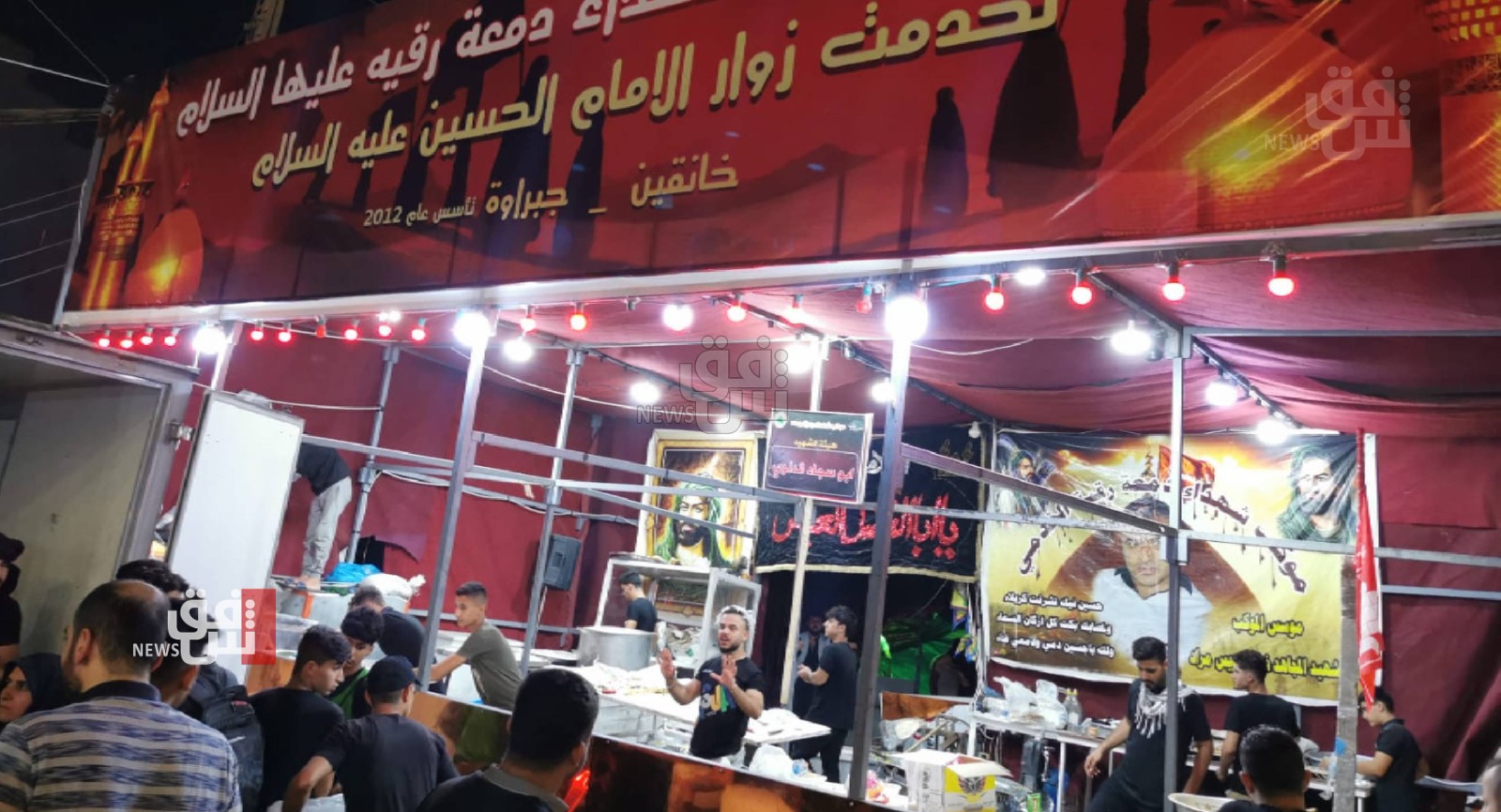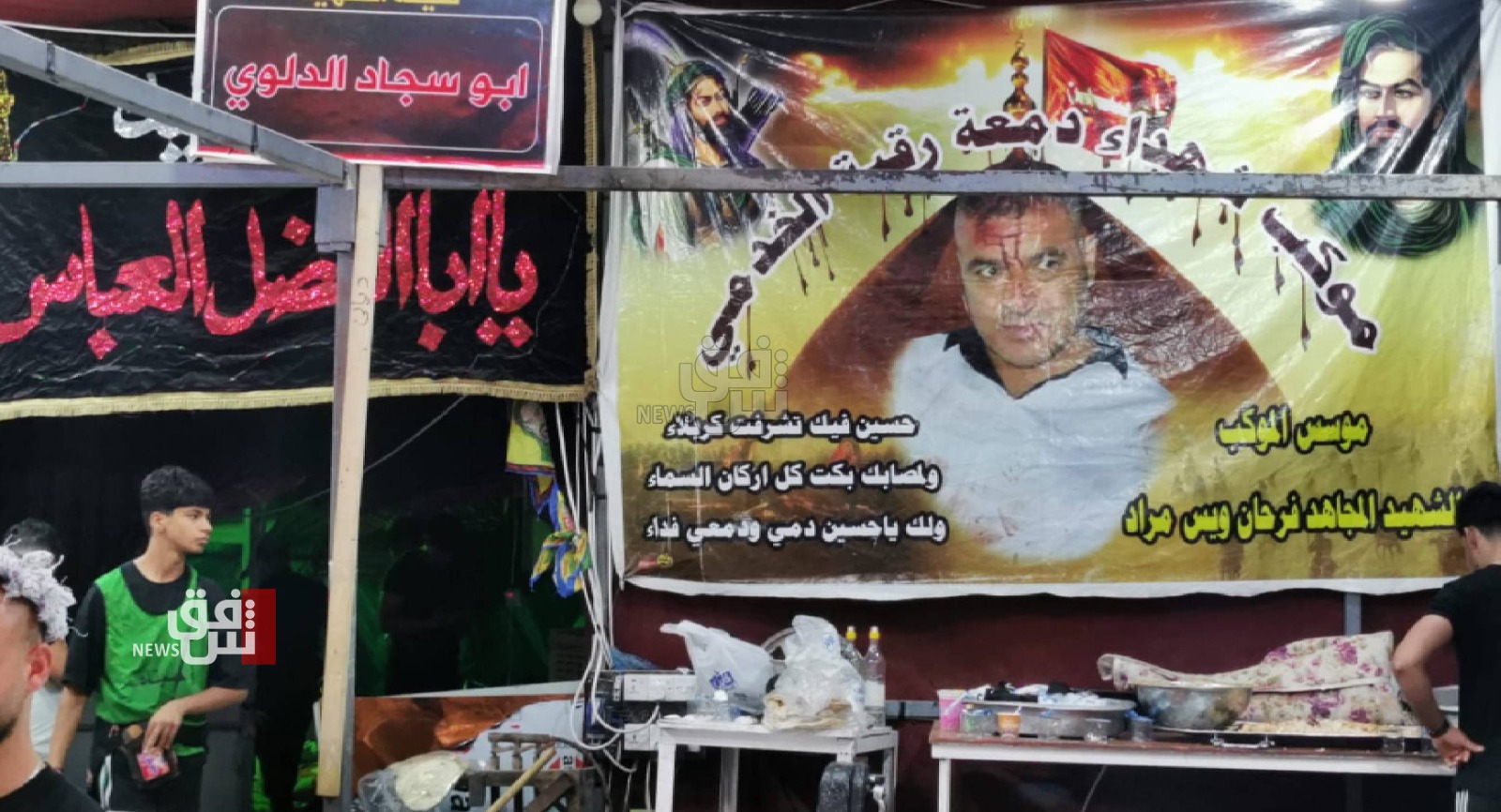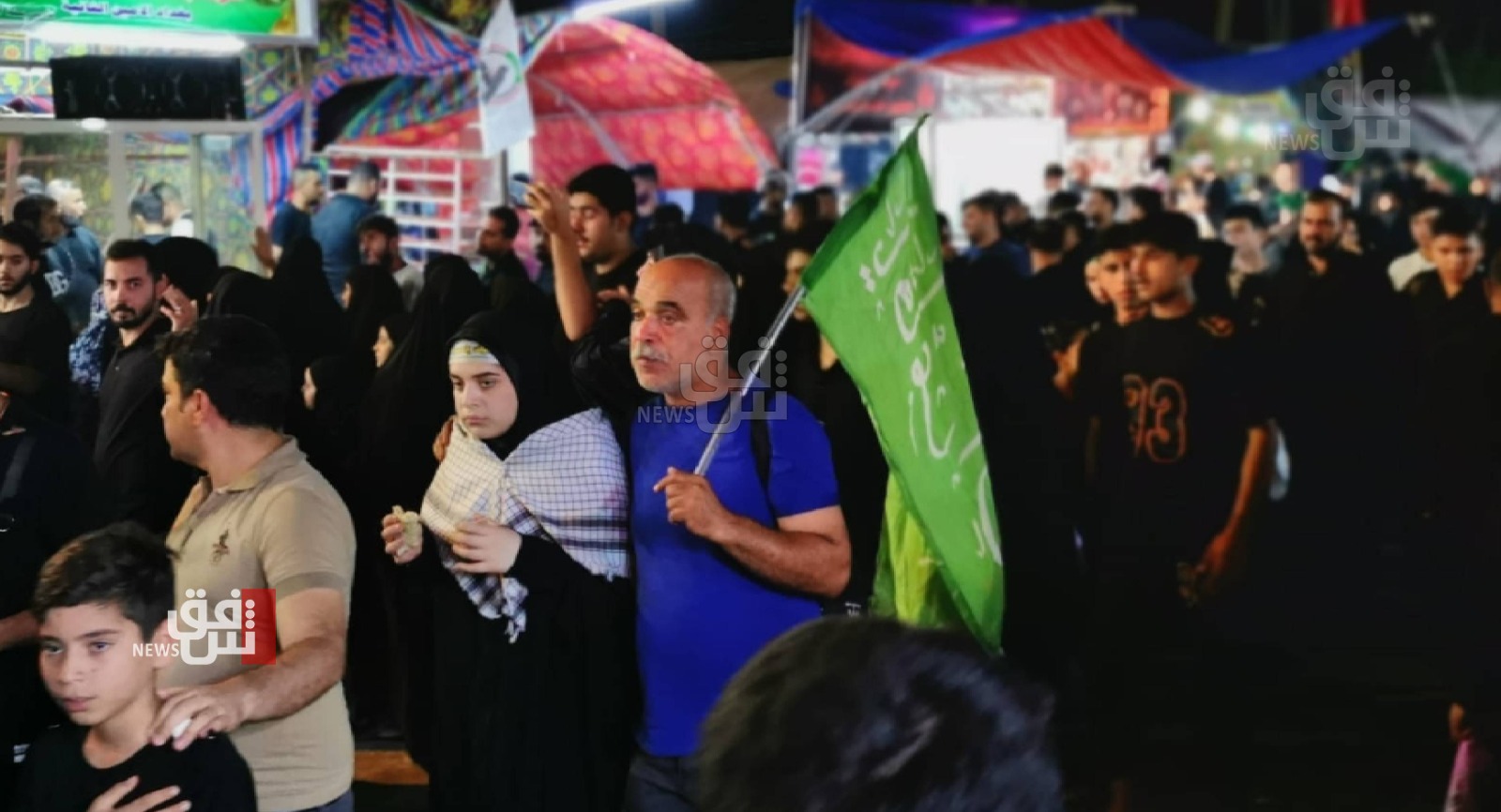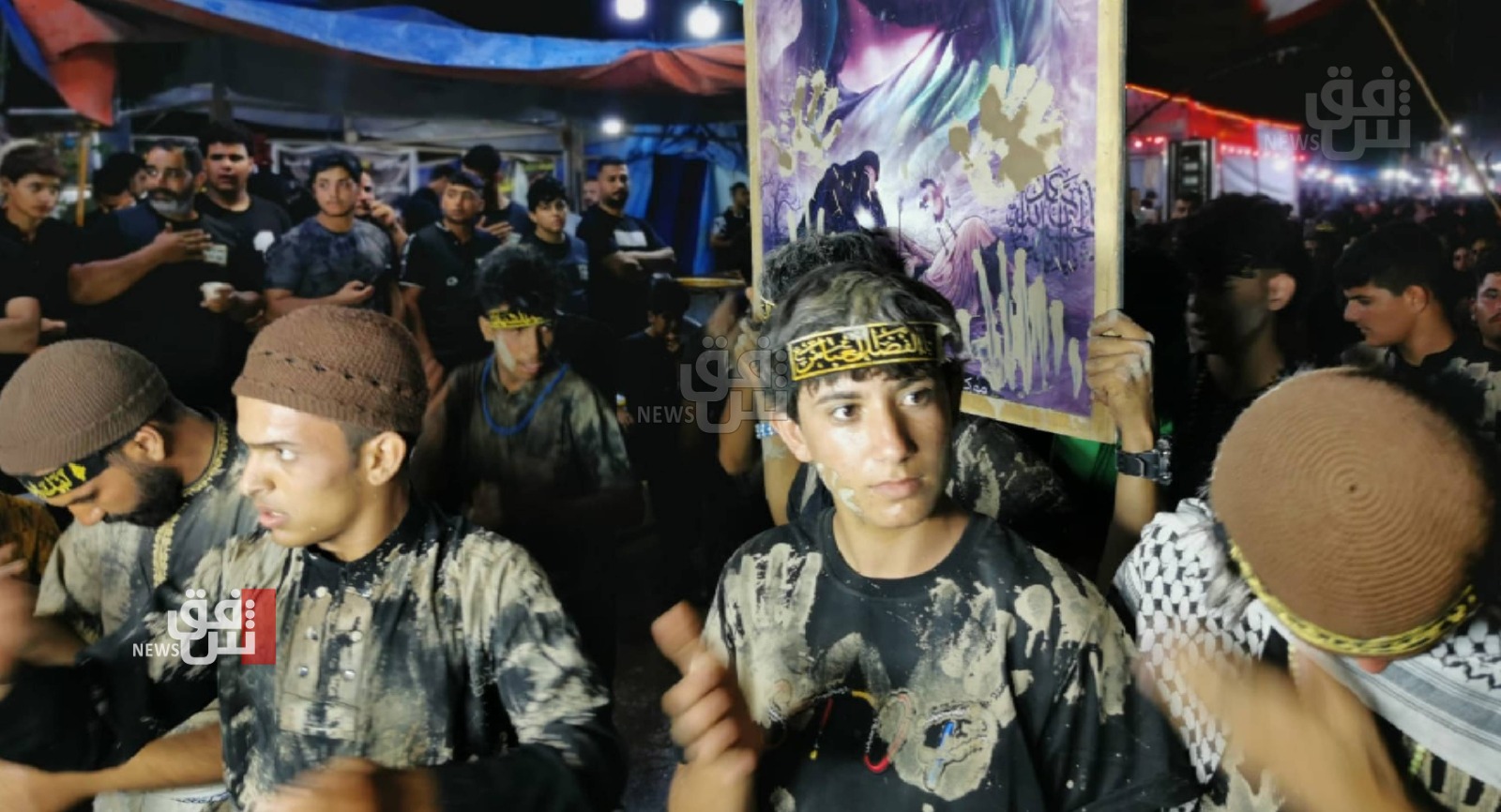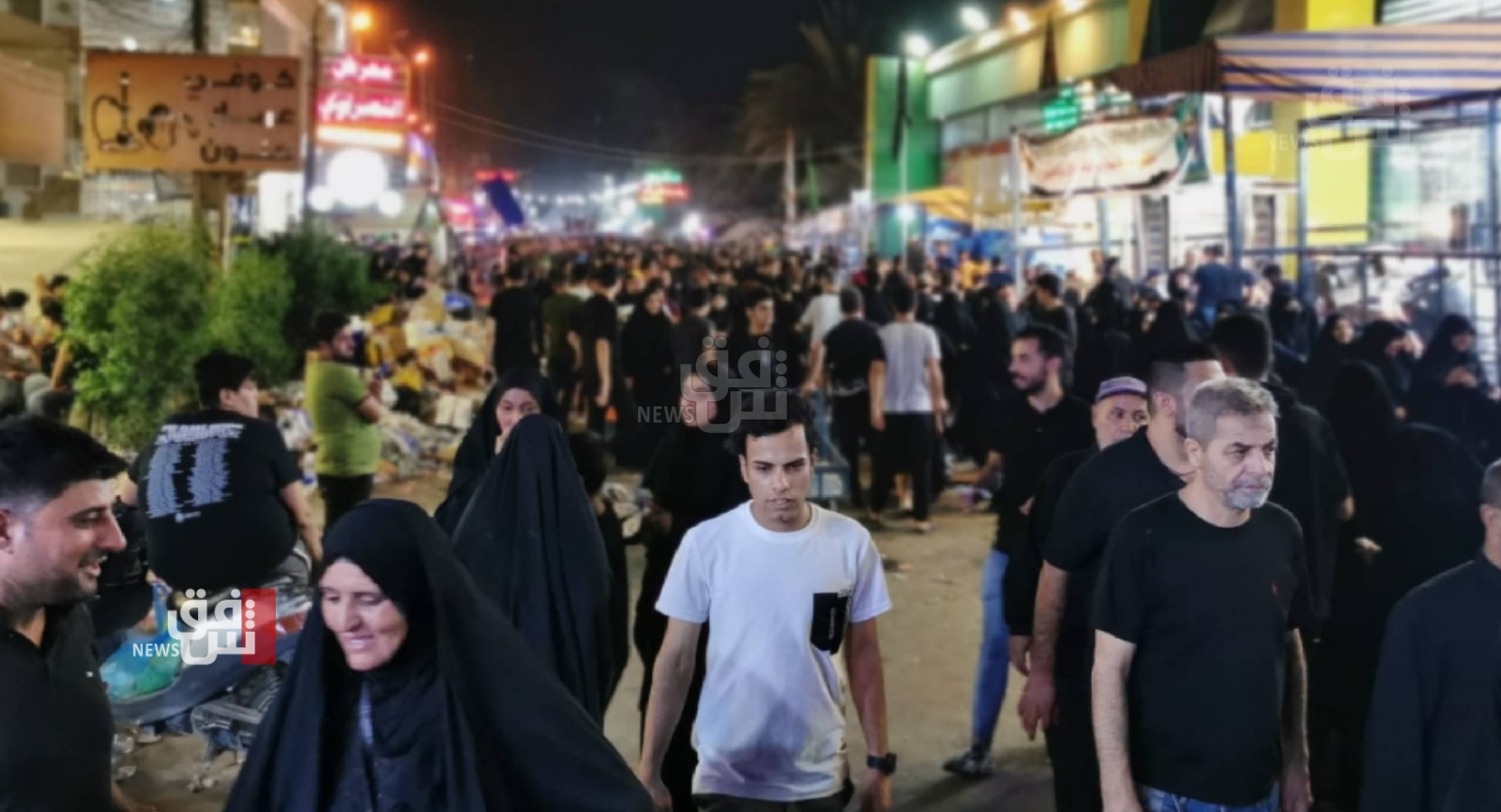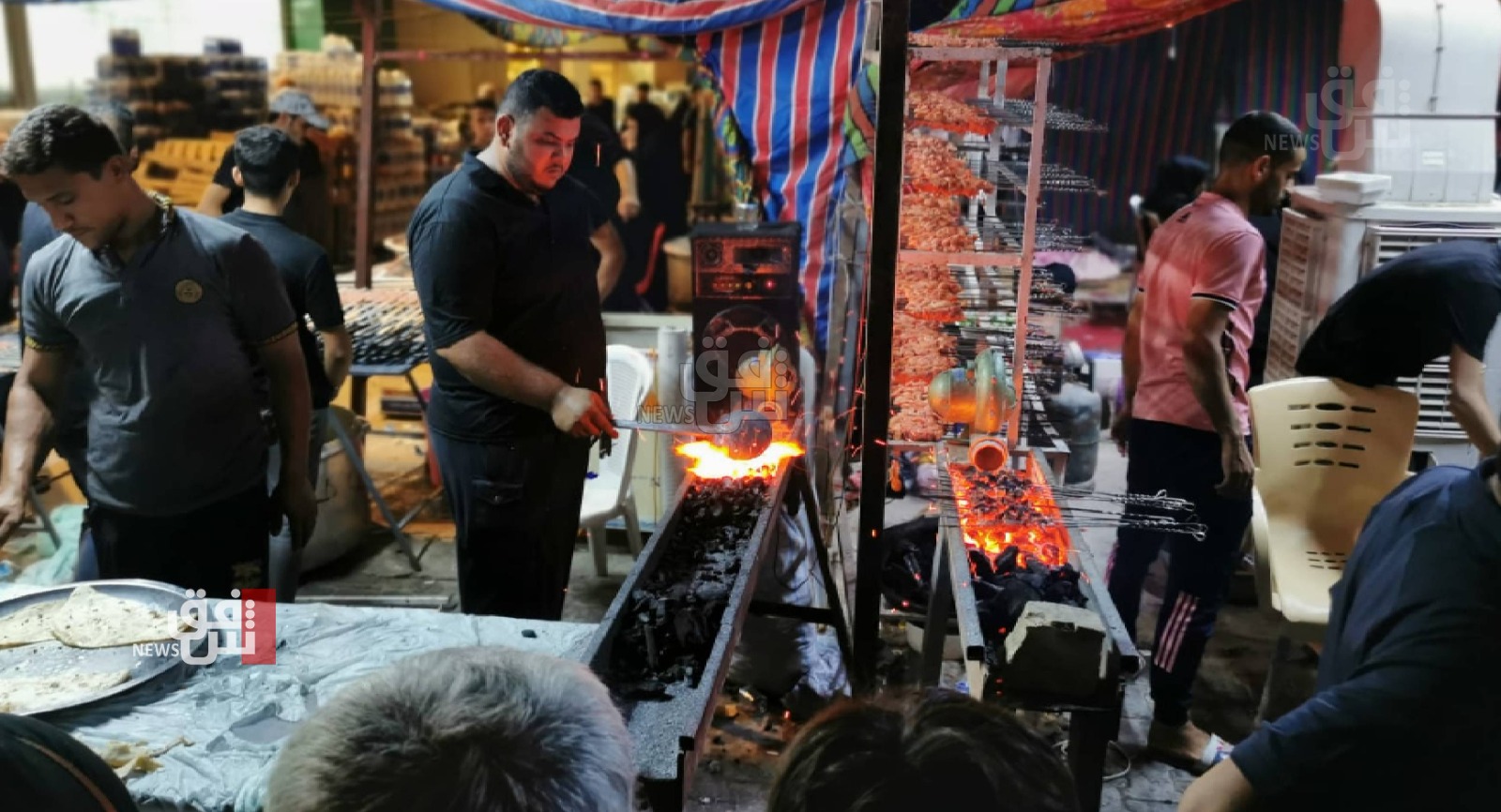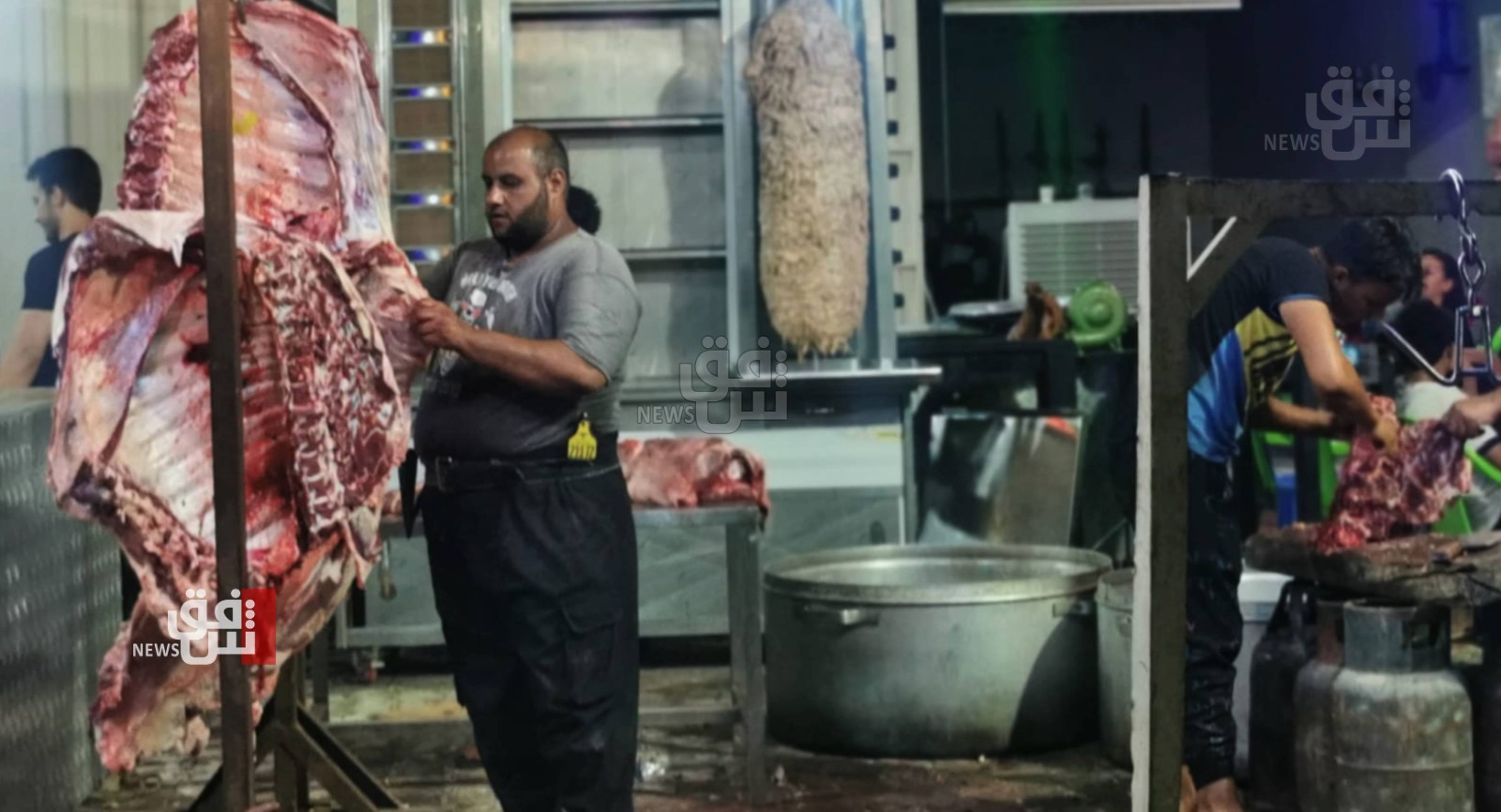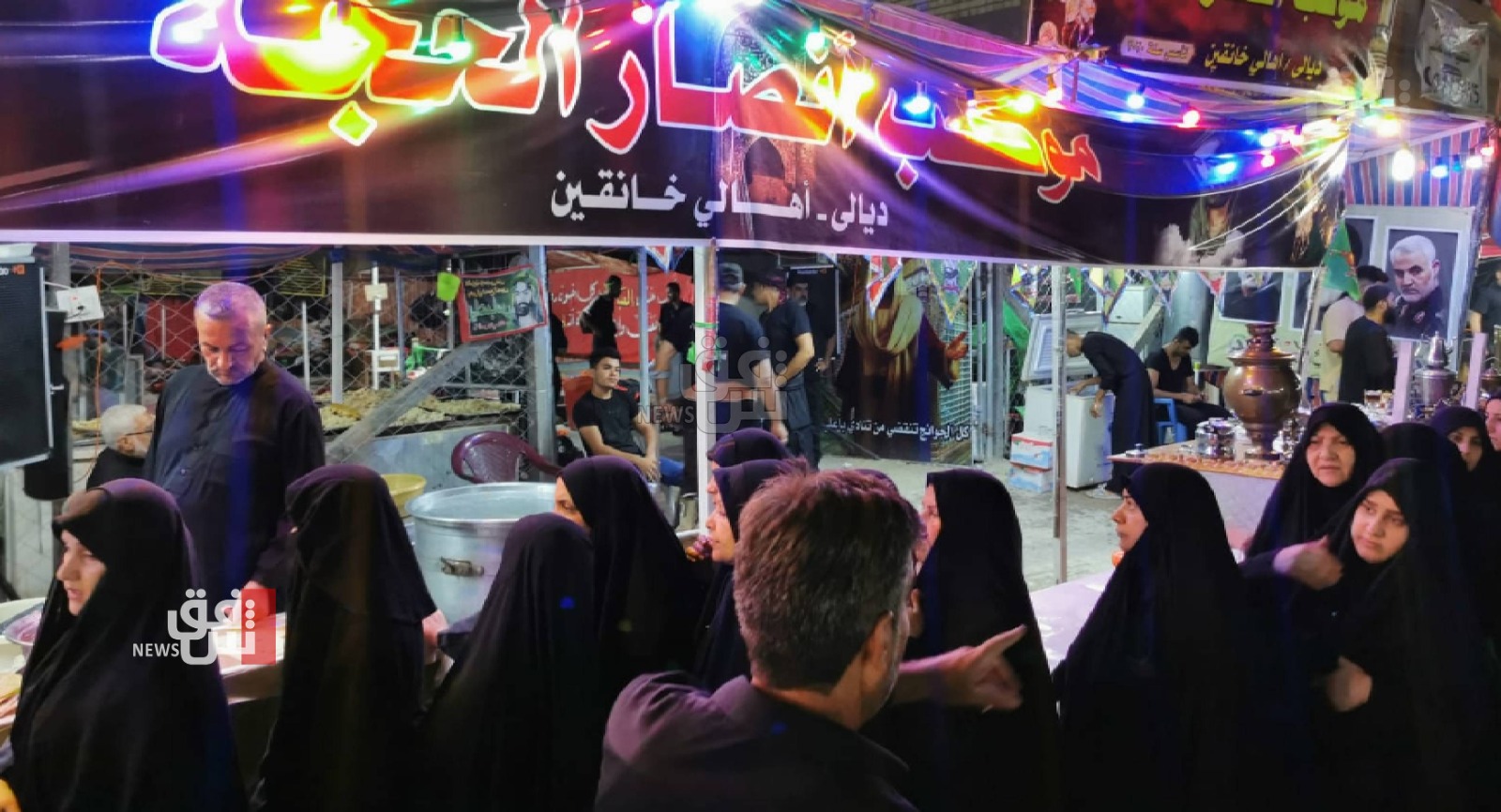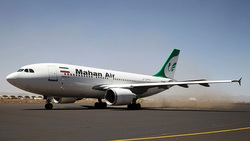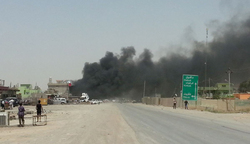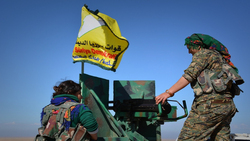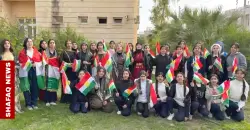From Khanaqin to Karbala: Kurds organize Mawkebs "for the love of Hussein"
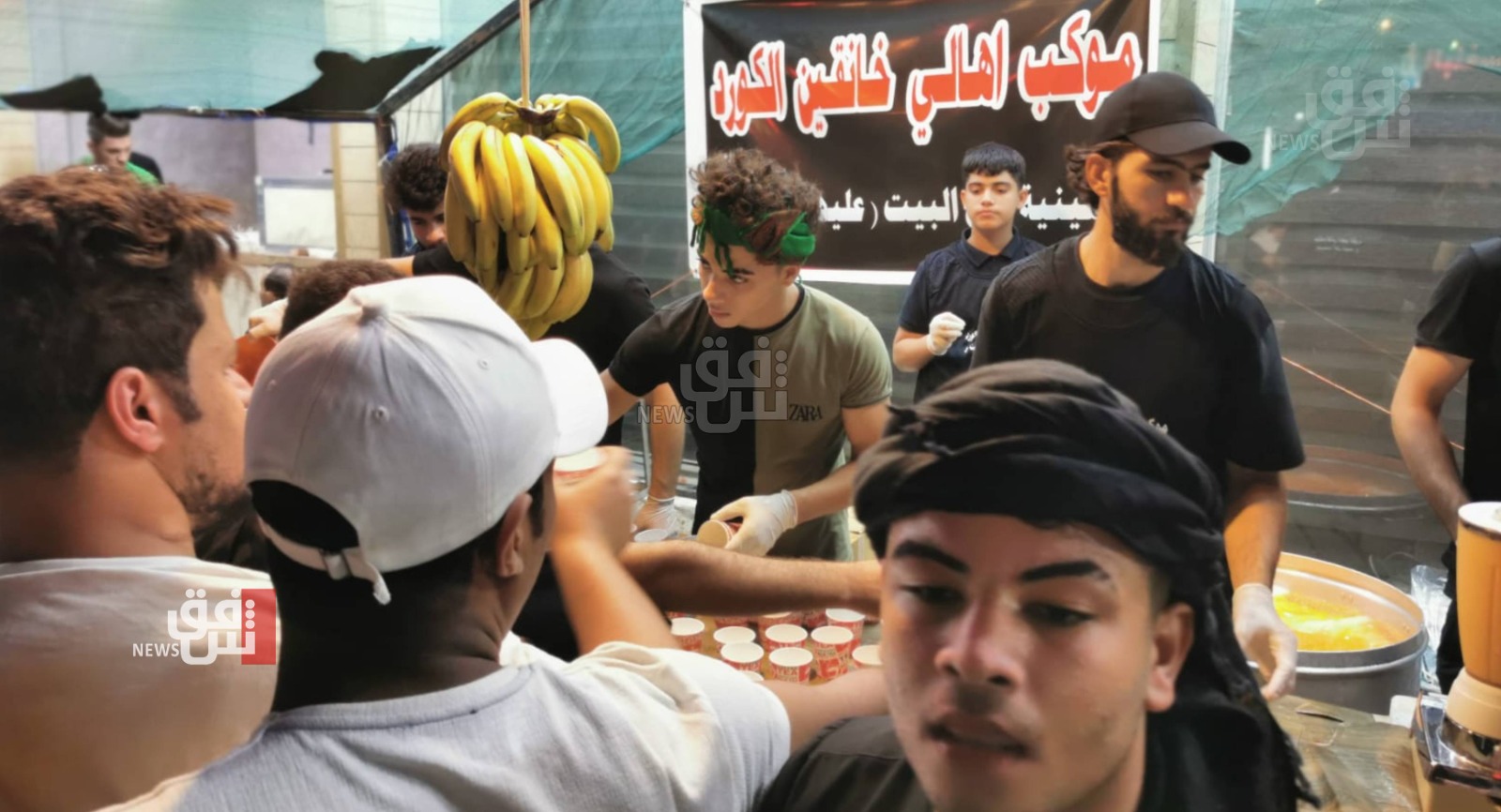
Shafaq News/ "For the love of Hussein," hosts shout to Shiite pilgrims passing roadside food tents in Khanaqin on their way to the holy city of Karbala on foot.
Mawkebs, hospitality tents, are many in Khanaqin, a city in Diyala with a Shiite Kurdish majority near the borders with Iran. They offer free food, shelter, and even clothes to the thousands of pilgrims making the 260-kilometer journey to Karbala, which will take them four to five days, for the annual Arbaeen pilgrimage.
Arbaeen marks the end of a 40-day mourning period for the grandson of the Prophet Mohammad, Imam Hussein, killed in a battle against fellow Muslims in 680. The climax of the pilgrimage will be held on September 19 in Karbala.
"Mawkebs organized by the Kurds in Khanaqin is a representation of a heart-felt will to follow the leads of Imam Hussein and endorse the principles of sacrifice and humanity," Abu Zahra Surmeri, the chief organizer of Mawkebs in the Kurdish city.
"We have eleven Mawkebs in Karbala; not to mention the mawkebs we run jointly with people from central or southern governorates," he said, "these tents were pitched on Muharram 17. Since then, we have been serving Iranian pilgrims crossing our city via al-Muntheriya border crossing. They will continue to flow until Safar 21."
"There is no political or government intervention here. What we offer is only what the people of Khanaqin voluntarily provide," he added.
Mohammad Ali, a Kurd from al-Seddah in Khanaqin who runs a mawkeb named after the late Egyptian Shiite clergyman Hasan Shahata, told Shafaq News Agency, "every year, five days prior to Safar 20th, we pitch our tent to serve the pilgrims."
"What we do here is proof that Imam Hussein is not a symbol of a particular group, sect, or ethnicity," he said.
